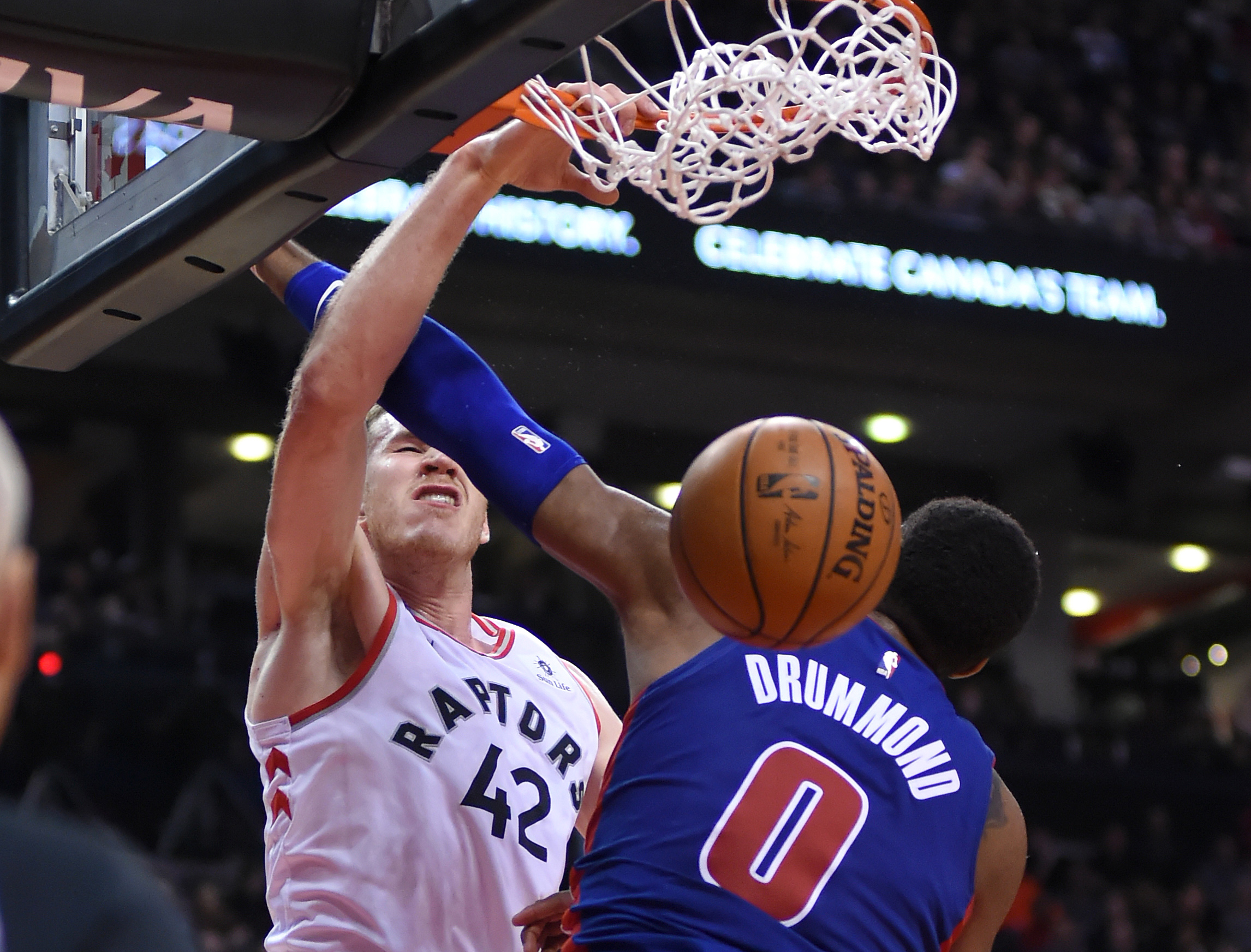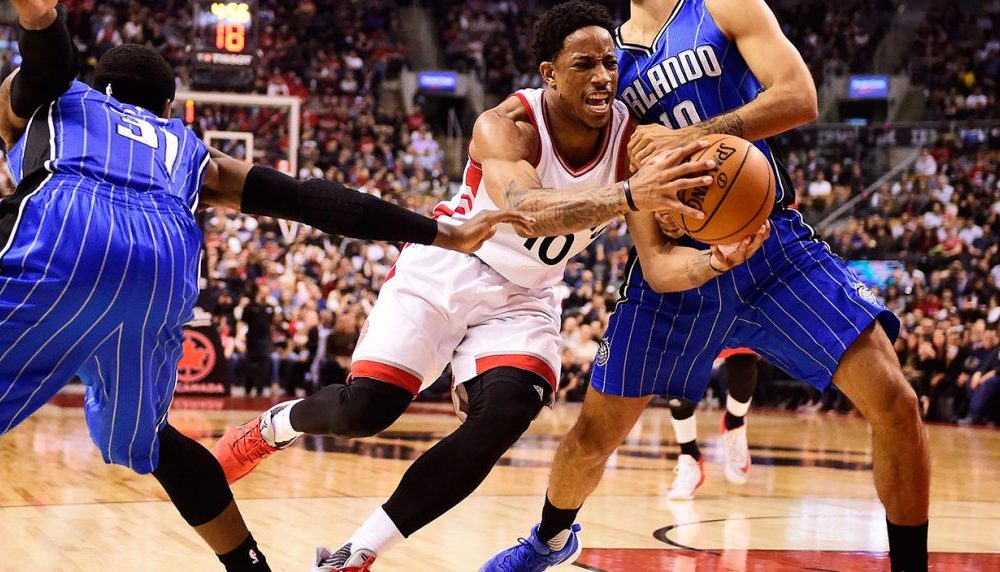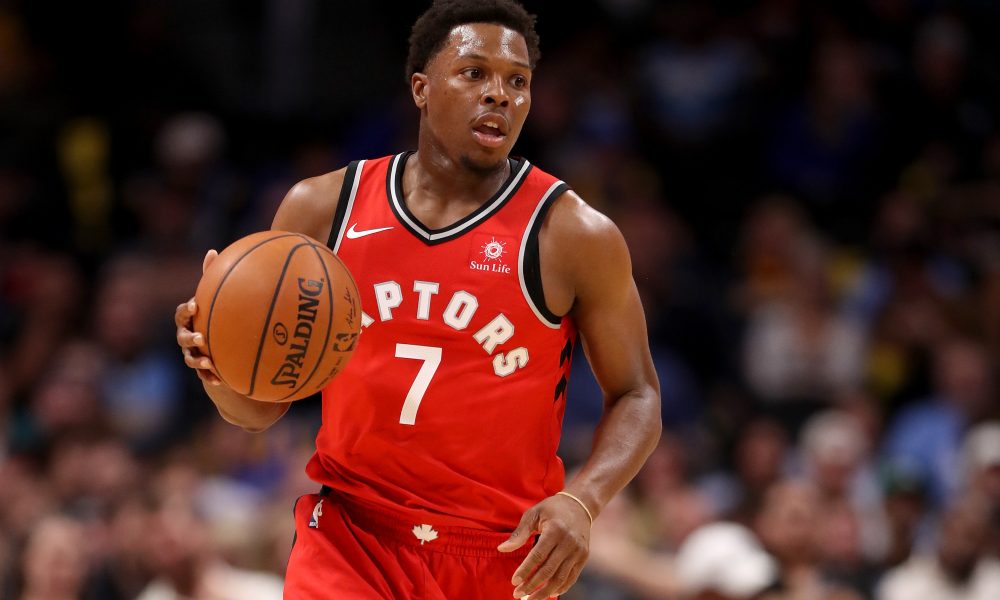Is it possible to win too much in the regular season? Sure, you play as well as you can to determine how good you are relative to other teams in the league, and if you are good enough to amass wins then you are rewarded to favourable playoff seeding and homecourt advantage, but…
As the Raptors have learned again and again in recent years, success in the regular season does not always directly translate into success in the postseason. The Raptors are routinely one of the best regular season teams in the league, and yet when they reach the Playoffs they look like they’ve never played basketball together. Rotations shorten, game plans tighten, and things that worked in January no longer work in May. DeMar DeRozan doesn’t get the same bounty of calls, swarming defences tend to devastate Toronto’s offensive efficiency, and the weight of the moment has often appeared to paralyze what should be a fairly confident group.
That was part of the impetus for this season’s stylistic makeover. More passing, more variety in the offence and defence, and the hope was it would translate to more Playoff success. We won’t know for a few more weeks whether or not these changes will make a difference in the postseason, but they have certainly had an impact on the regular season, as the Raptors routinely crush opposing teams (their plus-8.6 point differential is tied for second-best in the league) and currently sit atop the Eastern Conference with a 42-17 record.
Winning (or even dominating) in the regular season, though, wasn’t the goal this season. Yes, the ancillary benefits of that winning mentioned above will befall them if they can maintain their current pace, but it paradoxically may wind up being a detriment to their Playoff preparedness because of all of the warts winning papers over.
The hot topic of late has been their play in the clutch. The Raptors are only 14-13 in the clutch this season (defined as being within five points in the last five minutes of a game), and only 4-7 since January 9th. Their offence stagnates in these situations, they play tight, and the trust in the new system seems to disappear as Lowry and DeRozan attempt to play hero ball down the stretch. They need clutch reps to work through these issues. The problem is, the Raptors are very rarely in clutch situations at the end of games. That aforementioned point differential comes as a result of a lot of blowouts. So, the Raptors can perform particularly poorly in the clutch of a game, and work on it in practice, but it could be weeks before they have a chance to apply those learnings in-game. Practicing clutch execution is practically oxymoronic, considering you can’t even pretend to simulate emotional state of playing in a close game in the last five minutes, nor the rabid intensity of an opponent on the verge of a clutch win. Yes, you can repeat the plays that you want to run in those situations ad naseum, but that’s a terribly small part of the entire equation here. It’s like how you are supposed to practice free throws when you’re tired, to better simulate taking them in a game. The Raptors are winning too decisively too often to get to really hone their clutch performance, and — hilariously — that could wind up being a problem in close games in the Playoffs.
But this is about more than just the well-documented struggles in the clutch. The Raptors are winning so much, you can also ignore the fact that they are not a particularly great three-point shooting team. Their distance shooting is as erratic as any part of their offence. The Raptors are in the bottom-ten in the league in three-point shooting on wide open threes. They make only 37.9% of their wide-open looks. That means that even if they can execute their offence to perfection, getting a wide-open look from behind the arc (just about the ideal shot in modern basketball), they are in the bottom-third of the league in actually making those shots. For a team that desperately needs to open up space for Lowry and DeRozan to operate, that isn’t going to cut it (the Raptors are also 20th in general three-point percentage, so it’s not like I’m cherry picking one area of want).
As of late, this hasn’t mattered much. The team has been winning, and they’ve had enough ‘on’ games with their shooting that it can convince the average fan that they are actually a good three-point shooting team that has off nights, rather than the truth, which is that the are a mediocre three-point shooting team that has on nights. We’ve seen the floor constrict in the postseason, suffocating Toronto’s All-Stars, which is why the offence was redesigned in the first place. They create a lot more open three point opportunities now. However, if the Raptors can’t make enough shots in a seven-game series, their ability to overcome that liability in the regular season won’t ultimately amount to much.
Lastly is their lack of tenacity of the defensive boards. The Raptors are the seventh-worst team in allowing second-chance points in the league, which mostly puts them in a class alongside bottom-feeders like Phoenix, Orlando, Atlanta, and Brooklyn (although Golden State and Washington are third and first in that designation, so this isn’t just a Toronto problem). Again, when you are blowing out teams, this isn’t such a huge problem, but Toronto is still 13th-worst in this category even in wins, so it isn’t like they get their act together when they have to beat an opponent. They are mostly just able to neutralize it as a problem.
Possessions are vital in the postseason. Every. Play. Matters. Giving up second-chance points is morale-killing, and it can have a deleterious affect on the runs (both for and against) that power the ebb and flow of a basketball game. The Raptors are good at stopping initial attacks, but if a team gets the offensive rebound their chances of hitting their next shot rise dramatically as the defence scrambles to re-orient. We’ve seen how Toronto can struggle to score in the Playoffs, and so they cannot be sacrificing easy scores to the other team by not consistently keeping them off of the offensive glass.
None of this should be seen as too large an overreaction, though, as some sign that the Raptors are dead in the water despite a stellar regular season. However, given Toronto’s past, we have to be cognizant of the fact that the club has a very real history of taking stellar regular seasons and seeing them become quickly irrelevant in the Playoffs. They were able to ride off the excesses offered by a long regular season, only to see them get exposed when those excesses were depleted in postseason play. It’s not so much that winning blinds teams to their own flaws, but rather that winning makes it hard to gauge how big flaws are (or will be when in the Playoffs). Toronto has attempted to tailor themselves for success in the postseason by re-imagining their approach this year, but the reason people still aren’t fawning over their achievements this year is because of this recent past. Fans — and the team — will have to get used to the doubting until the players are able to exorcize their demons in April, May, and (if they’re lucky) June.



